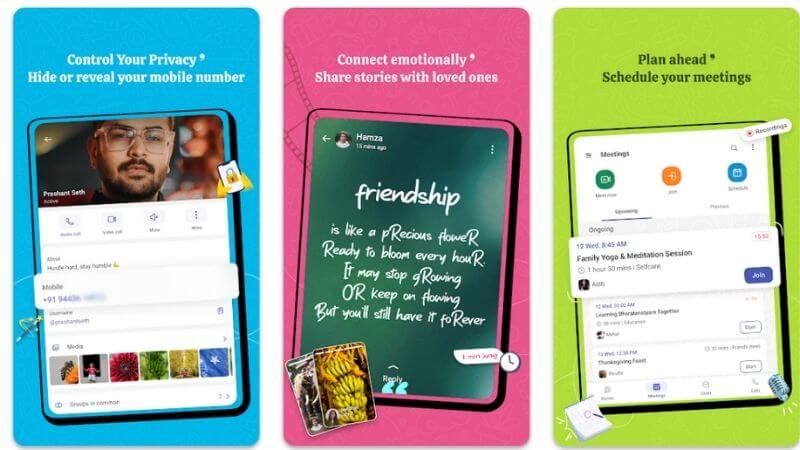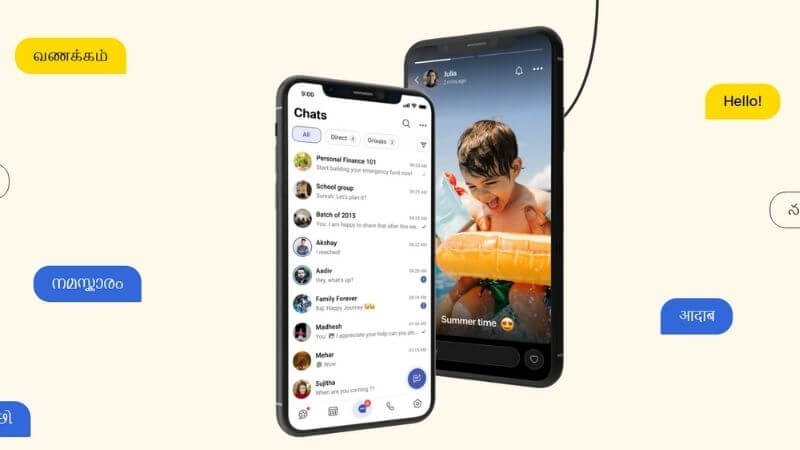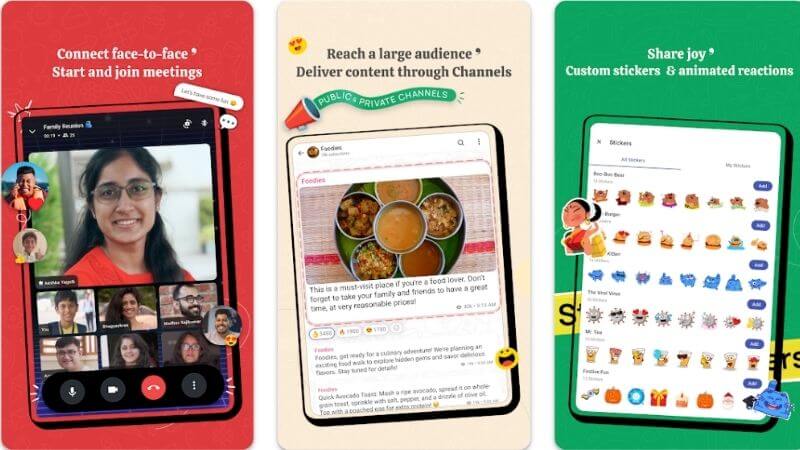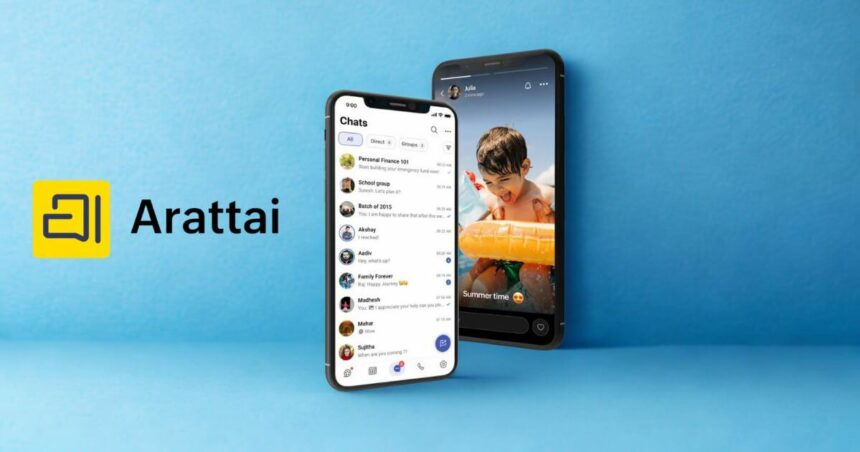Over 500 million Indians use WhatsApp every single day. It’s how we talk to family, coordinate with colleagues, and even order groceries. “Let’s make a WhatsApp group” has become the default response to everything. But there’s a new player in town that wants to change this. Arattai, built by Chennai-based Zoho, is trying to give WhatsApp some serious competition.
What Is Arattai?

Arattai means “casual chat” in Tamil. It’s a messaging app that does what you’d expect: text messaging, voice, and video calls, media sharing, and stories. Sounds like WhatsApp, right?
The app comes from Zoho, which is headquartered in Chennai. They’ve positioned it as a “Made-in-India” alternative to global messaging apps. Right now, it has end-to-end encryption for calls but not for text messages yet.
The app recently got a boost when the Union Education Minister Dharmendra Pradhan asked people to try it out. He called it a secure, domestic option. Since then, Arattai has hit the number one spot in app store rankings.
What Makes Arattai Different?

You get the basics in one-to-one chats, group chats, voice notes, and media sharing. Audio and video calls are encrypted end-to-end. You can use it on multiple devices, including your desktop and even Android TV. There are stories and channels too, just like other apps.
But here’s where it gets interesting. Zoho says they won’t monetize your personal data. Unlike global apps that have been caught using information for ads, Arattai promises to keep your data private. For people worried about digital privacy and surveillance, this matters.
Can It Replace WhatsApp?
Let’s be real. WhatsApp is not going anywhere easily. Other apps have tried: Hike, Telegram, and WeChat. They all took their shot at the crown, but WhatsApp beat them all. So what’s different?
What’s Working in Arattai’s Favor:
It is, in fact, being discussed by people. That’s step one. The Made-in-India label appeals to Indians who are concerned with digital sovereignty and favoring locally produced tech. Throw in government promotion, and you have visibility that most startups do not have access to.
Users have a good level of protection for their privacy with the encrypted calls. The support of multiple devices, stories, and channels ensures that it is not a simple chat application. It is attempting to be all things at once — a messenger, mini social network, and broadcasting tool in one.
The Challenges:
Text messaging is not encrypted all the way through. That’s huge. WhatsApp has that, and if Arattai is interested in competing on privacy, this gap must be bridged as soon as possible.
Next, there is the network effect. Your friends are all on WhatsApp. Your parents, your boss, your friends, the guy who delivers your food. Getting them all to change? Good luck with that.
WhatsApp is not a new application. It’s a habit. Individuals do not switch messaging applications the way they switch socks.
What Is Next?

Arattai has potential. It has governmental support, privacy, and Indian identity, which other apps lack. WhatsApp as a whole substitute? That’s a stretch.
Provided that Zoho incorporates message encryption, maintains the application’s stability, and introduces updates that are actually desired by people, Arattai may snatch a fair share of users. Those who value their privacy and those who intend to use Indian technology may switch. Yet the majority of Indians are likely to remain with what they are familiar with.
It is not whether tomorrow Arattai is capable of replacing WhatsApp. It is whether it will be able to gain sufficient momentum to become a viable second choice. When it does so, it has already won something worthy of notice.
Follow Us: Facebook | X | Instagram | YouTube | Pinterest













